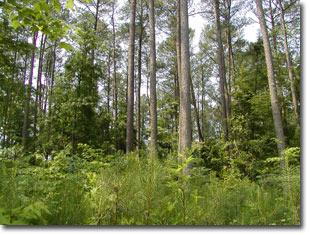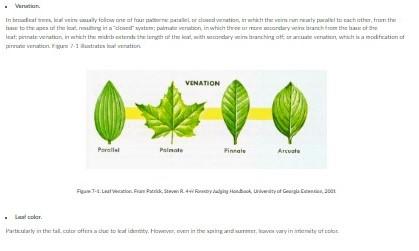
Learn to be a steward of the land this fall with the University of Maryland Extension’s General Forestry Course. The online course features revised content with updated with many new full-color photos and graphics, and will run from August 26 through December 9, 2024. Registration is now open, and interested participants can learn how to register at extension.umd.edu/forestry-course.

This is a non-credit course with no formal classes ‒ work from the comfort of your home using your own woodlot, a friend's, or a public forest. The course covers how to protect your trees from insects, diseases, and fire; step-by-step procedures walk you through a forest inventory and stand analysis; and the details of the forestry business are presented, including tax nuances and the sale and harvest of forest products. Ultimately, the course exercises help you develop the framework for a stewardship plan for your forest.
The cost for this forestry course is $150.00. Included in the cost are copies of the supplemental readings: A Sand County Almanac, The Woodland Steward, American Forests: A History of Resiliency and Recovery, a small pamphlet entitled “What Tree Is That?” and Common Native Trees of Virginia Tree Identification Guide. Users receive a flash drive of the paper version of the text and appendices. A certificate of completion is awarded when all assignments are completed.
To learn more about the course and what it entails, go to extension.umd.edu/forestry-course. There you can read lessons from the text, preview an exercise, read through detailed course information, and more.
For more information, contact Andrew Kling at the University of Maryland Extension Western Maryland Research & Education Center at 301-226-7564, or via email at akling1@umd.edu.
Branching Out, Vol. 32, no. 3 (Summer 2024)
Branching Out is the free, quarterly newsletter of the Woodland Stewardship Education program. For more than 25 years, Branching Out has kept Maryland woodland owners and managers informed about ways to develop and enhance their natural areas, how to identify and control invasive plants and insects, and about news and regional online and in-person events.